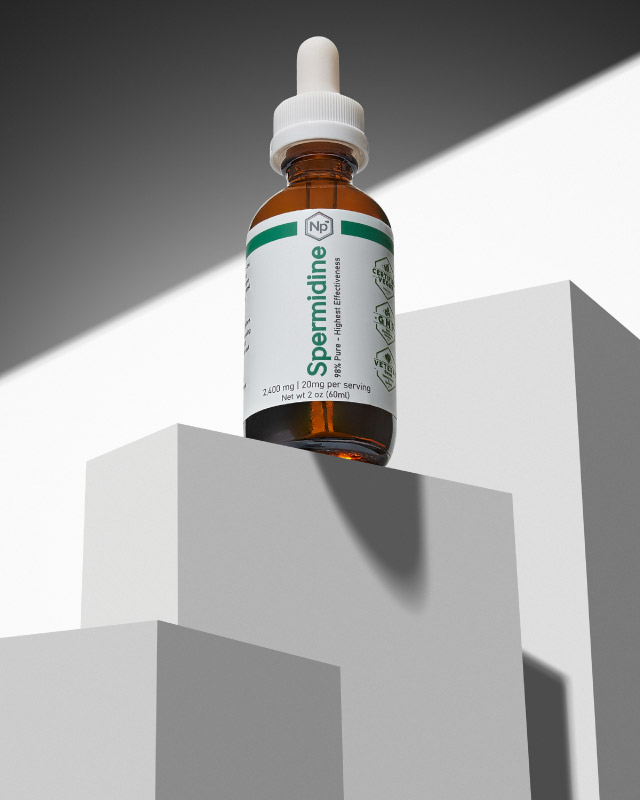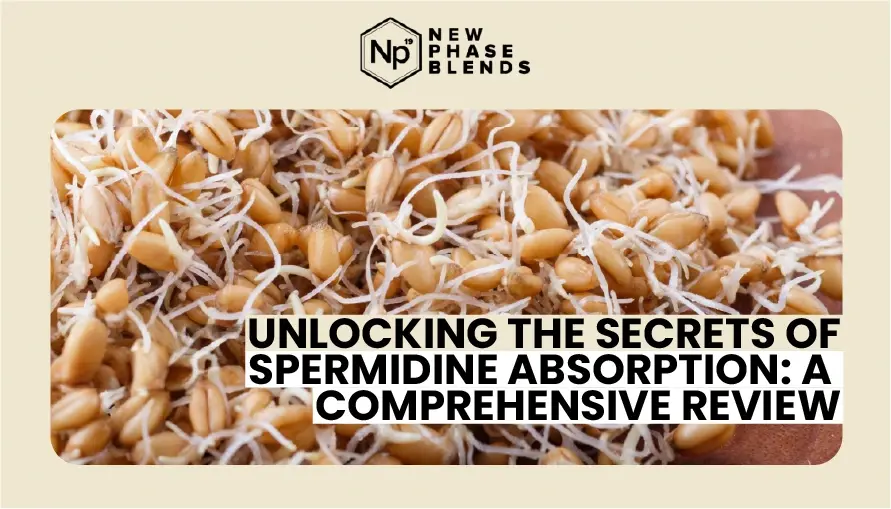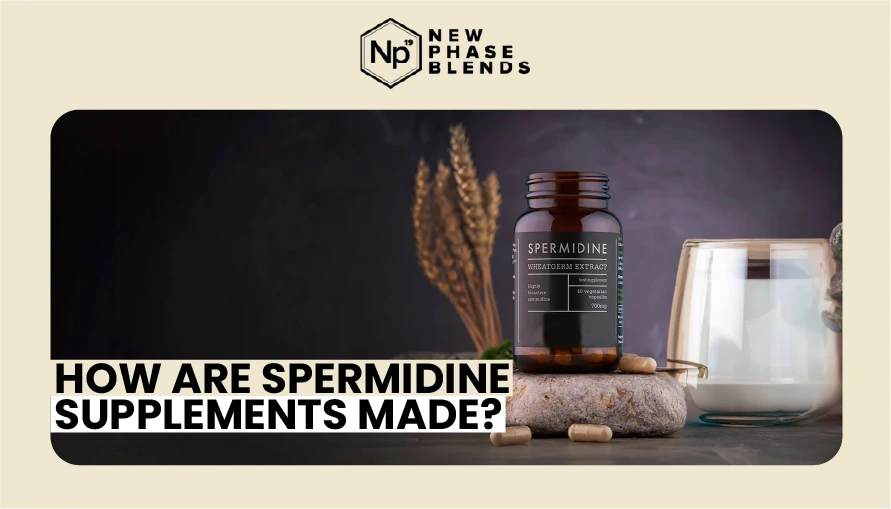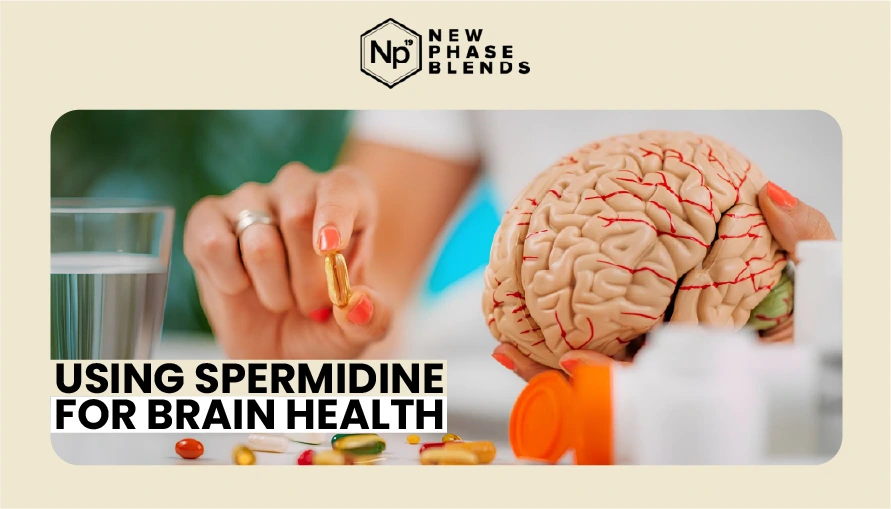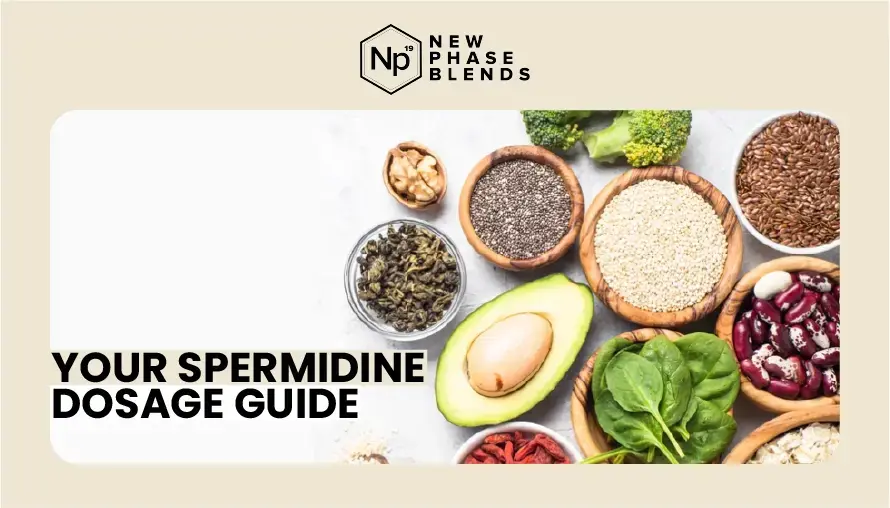Spermidine, a naturally occurring polyamine compound found in foods like wheat germ, soybeans, and aged cheese, has gained significant attention in recent years for its potential longevity and health benefits. As research into this fascinating compound continues to evolve, many health-conscious individuals are turning to spermidine supplements to ensure consistent intake. However, not all supplements are created equal, and selecting a high-quality product requires careful consideration of several key factors.

This comprehensive guide will walk you through everything you need to know about choosing an effective spermidine supplement—from understanding what spermidine is and its potential benefits to identifying the critical markers of supplement quality and avoiding common pitfalls in the marketplace.
Understanding Spermidine: The Basics
Spermidine was first isolated from semen (hence its name) but is actually present in all living cells. It’s a polyamine—a type of organic compound containing multiple amino groups—that plays crucial roles in cellular maintenance, growth, and survival. Our bodies naturally produce spermidine, and we also obtain it from various foods in our diet.
The compound gained prominence in longevity research when scientists discovered its ability to induce autophagy, the cellular “self-cleaning” process that removes damaged components and recycles them for cellular repair. This process is considered essential for healthy aging and may help explain why spermidine has been associated with increased lifespan in various model organisms.
As we age, natural spermidine levels tend to decline, which has led to interest in supplementation as a potential strategy to maintain optimal cellular function and promote healthy aging.
Research-Backed Benefits of Spermidine
Before investing in any supplement, it’s important to understand the evidence behind its purported benefits. Here’s what current research suggests about spermidine:
Cellular Renewal and Longevity
Multiple studies have shown that spermidine can promote longevity in various organisms, from yeast to mice. A 2018 study published in the journal Nature Medicine found that spermidine supplementation extended the lifespan of mice and improved cardiovascular health. Human epidemiological studies have also shown correlations between higher dietary spermidine intake and reduced mortality risk.
Cognitive Function
Emerging research suggests spermidine may support brain health. A 2021 study in Cell Reports indicated that spermidine supplementation improved memory performance in older adults with subjective cognitive decline. The compound appears to protect neurons and may help maintain cognitive function during aging.
Cardiovascular Health
Spermidine has shown promise for heart health, with research indicating it may help maintain proper blood pressure, reduce inflammation, and support overall cardiovascular function. A 2016 study in the American Journal of Clinical Nutrition found associations between higher dietary spermidine intake and reduced risk of cardiovascular disease.
Hair Growth and Skin Health
Some studies suggest spermidine may support hair follicle function and promote skin health through its autophagy-enhancing properties, though more research is needed in these areas.
While these findings are promising, it’s worth noting that much of the research is still in early stages, particularly human clinical trials. Supplement choices should be made with this understanding in mind.
Key Factors in Choosing a Quality Spermidine Supplement
When evaluating spermidine supplements, consider these essential quality markers:
Purity and Potency
The concentration of active spermidine in a supplement is perhaps the most crucial factor. High-quality supplements clearly state the amount of spermidine per serving, typically measured in milligrams. Look for products that provide between 1-5mg of spermidine per daily dose, as this range aligns with amounts used in preliminary clinical studies.
Be wary of products that list only “proprietary blends” without specifying the exact spermidine content. Transparency regarding potency is a hallmark of reputable manufacturers.

Extraction Method
How spermidine is extracted from its source material significantly impacts its quality and bioactivity. Look for supplements that use gentle, clean extraction methods like water extraction or enzyme-assisted extraction rather than harsh chemical solvents that may leave residues or damage the compound’s structure.
Some premium manufacturers employ extraction technologies specifically designed to preserve the natural co-factors that may enhance spermidine’s effectiveness.
Standardization and Consistency
Batch-to-batch consistency is essential for reliable results. High-quality supplements undergo standardization processes to ensure each batch contains the same concentration of active compounds. Look for products that mention standardization on their labels or websites.
Source Matters: Natural vs. Synthetic Spermidine
Spermidine supplements derive their active ingredient from various sources, each with potential advantages and disadvantages:
Wheat Germ Extract
Wheat germ is one of the richest natural sources of spermidine. Supplements derived from wheat germ often contain a complex of other beneficial compounds that may work synergistically with spermidine. However, these are unsuitable for those with wheat allergies or celiac disease.
Vegetable and Legume Extracts
Some supplements source spermidine from vegetables and legumes like soybeans, pumpkin, or broccoli. These plant-based options may appeal to vegetarians and vegans and typically contain complementary phytonutrients.
Synthetic Spermidine
Laboratory-produced synthetic spermidine offers precise dosing and high purity but may lack the complementary compounds found in natural sources. While synthetic options can be effective, many experts suggest that natural food-derived spermidine may offer additional benefits through its natural co-factors.
Novel Sources
Some innovative supplements use fermentation processes with specially selected microorganisms to produce spermidine. These methods can potentially yield higher concentrations with good bioavailability.
The ideal source often depends on individual preferences and health considerations, but generally, naturally-derived spermidine from clean, well-documented sources tends to be preferred by health professionals.
Optimal Dosage and Bioavailability
Effective Dosage Range
Current research suggests beneficial effects may be observed with daily spermidine intake between 1-5mg, though optimal dosing is still being researched. Some supplements provide lower doses intended for long-term daily use, while others offer higher concentrations for specific therapeutic purposes.

Bioavailability Factors
The body’s ability to absorb and utilize spermidine from a supplement is critical to its effectiveness. Several factors influence bioavailability:
- Delivery System: Liposomal delivery systems, microencapsulation, or specialized absorption enhancers can significantly improve how well your body utilizes the spermidine.
- Form of Spermidine: Some supplements use spermidine bound to different compounds (like phosphate or hydrochloride), which can affect absorption rates.
- Timing of Consumption: Some research suggests taking spermidine supplements in the evening may align better with the body’s natural autophagy cycles.
Sustained-Release Formulations
Some premium spermidine supplements utilize extended-release technology to provide a steady supply of the compound throughout the day rather than a single spike in concentration, which may better mimic natural dietary intake patterns.
Additional Ingredients: Synergistic Compounds and Fillers
Beneficial Companion Ingredients
High-quality spermidine supplements often include complementary compounds that may enhance effectiveness:
- Resveratrol: Another autophagy activator that may work synergistically with spermidine
- Fisetin: A flavonoid with senolytic properties that can complement spermidine’s effects on cellular health
- Tocotrienols: Vitamin E compounds that support cellular membranes and may enhance spermidine’s benefits
Ingredients to Avoid
Be cautious about supplements containing:
- Excessive Fillers: Ingredients like maltodextrin, silicon dioxide, or magnesium stearate in large amounts may indicate a lower-quality product
- Artificial Colors or Flavors: These offer no health benefit and may suggest a focus on marketing rather than efficacy
- Preservatives: Some chemical preservatives may potentially interfere with spermidine’s beneficial effects
Allergen Considerations
Check labels carefully for common allergens, particularly with wheat germ-derived supplements, which may contain gluten unless specifically processed to remove it.
Third-Party Testing and Quality Certifications
Independent Laboratory Verification
The gold standard for supplement quality is third-party testing by independent laboratories. Look for products that provide certificates of analysis (COAs) verifying:
- Spermidine content matches label claims
- Absence of contaminants like heavy metals, pesticides, and microbial pathogens
- Verification of ingredient purity
Quality Certifications to Look For
Several certifications indicate higher manufacturing standards:
- GMP (Good Manufacturing Practices): Ensures consistent production methods and quality control
- NSF Certification: Indicates testing for harmful substances and verification of ingredient claims
- USDA Organic: For plant-derived sources, indicates production without synthetic pesticides or fertilizers
Transparency in Manufacturing
Reputable companies provide clear information about their manufacturing processes, testing protocols, and quality control measures. This transparency is a strong indicator of a trustworthy product.
Price vs. Value: What’s a Reasonable Investment?
Cost Considerations
Spermidine supplements vary widely in price, typically ranging from $30 to $100+ per month’s supply. While price doesn’t always correlate perfectly with quality, extremely cheap products should raise red flags about ingredient sourcing and potency.
Evaluating Value
Rather than focusing solely on price, consider value factors:
- Cost per mg of active spermidine: Calculate this to compare products objectively
- Additional beneficial ingredients: Some higher-priced formulations include complementary compounds that provide additional value
- Quality assurance measures: Third-party testing adds to production costs but provides important quality assurance
Subscription Options
Many reputable companies offer subscription services with discounted pricing for regular deliveries, which can make higher-quality products more affordable for long-term use.
How to Incorporate Spermidine Supplements into Your Routine
Timing Considerations
Research suggests that spermidine may be best absorbed when taken with a small amount of fat. Additionally, some experts recommend taking it in the evening to align with the body’s natural autophagy cycles.
Integration with Diet
Supplements should complement, not replace, dietary sources of spermidine. Foods rich in this compound include:
- Wheat germ and whole grains
- Aged cheeses, particularly blue cheese
- Mushrooms
- Soybeans and legumes
- Green peas
- Pears and apples
Potential Interactions
While spermidine is generally considered safe, consult with a healthcare provider if you:
- Take medications that affect autophagy
- Have liver or kidney conditions
- Are pregnant or nursing
- Have immune system disorders
Common Questions About Spermidine Supplementation
How quickly should I expect results?
Unlike stimulatory supplements that produce immediate effects, spermidine works at the cellular level over time. Most research studies show benefits after consistent use for at least 2-3 months. Patience and consistency are key.
Are there any side effects?
At recommended doses, spermidine supplements typically have minimal side effects. Some individuals report mild digestive discomfort when first starting supplementation, which usually resolves as the body adjusts.
Can spermidine supplements replace other longevity practices?
No. Spermidine supplementation should be viewed as one component of a comprehensive approach to healthy aging that includes regular exercise, adequate sleep, stress management, and a balanced diet.
Is spermidine suitable for everyone?
While generally considered safe for most adults, those with specific medical conditions, pregnant or nursing women, and individuals on multiple medications should consult healthcare providers before starting any supplement regimen.
Conclusion and Final Recommendations
Selecting a high-quality spermidine supplement requires attention to several key factors: potency and purity, source material, extraction methods, bioavailability, additional ingredients, third-party testing, and overall value. The ideal supplement will provide a standardized dose of spermidine from a clean, well-documented source, preferably with complementary ingredients that enhance its effectiveness.
When evaluating options, prioritize transparency—companies that clearly communicate their sourcing, manufacturing processes, and quality control measures typically produce superior products. While price is a consideration, value encompasses more than cost alone, and investing in a premium product may yield better results.
As research into spermidine continues to evolve, staying informed about new findings will help you make ongoing adjustments to your supplementation strategy. Remember that supplements work best as part of a holistic approach to health that includes a nutrient-dense diet, regular physical activity, quality sleep, and stress management.
By applying the criteria outlined in this guide, you’ll be well-equipped to select a spermidine supplement that meets the highest standards of quality and offers the greatest potential benefit for your cellular health and longevity goals.




